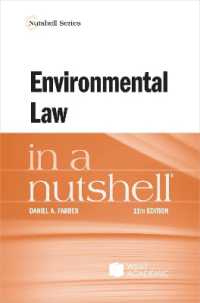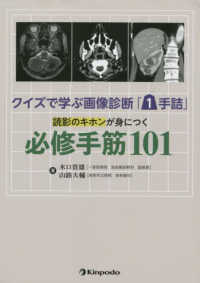- ホーム
- > 洋書
- > 英文書
- > History / World
Full Description
Unsettled History examines South African society and the construction and presentation of its public pasts, from Nelson Mandela's release from prison in 1990 to South Africa's hosting of the 2010 FIFA World Cup ®. Conventionally represented as a time of rectifying the silences and distortions of settler history through inclusion and recovery, the focus here instead is on the shifts in processes and locations of historicizing and the unsettled state of categories of framing history in post-apartheid South Africa. This era saw fundamental transformations in the order of knowledge: from the academy to the public; from popular history to public history; from history-as-lesson to history-as-forum.
Leslie Witz, Gary Minkley, and Ciraj Rassool take the reader to sites of historical production in which complex ideas about pasts are invoked, and navigate a path toward understanding the agencies of image-making and memory production. This volume is the outcome of the authors' intensive collaborative research and engagement over twenty-five years on questions including the production and performance of apartheid history; the cultural politics of social history; South Africa's Truth and Reconciliation Commission and practices of orality; tourism as an arena of image-making and historical construction; museums as sites of heritage production for a new South Africa; photographs, archival meanings, and the construction of the social documentary; and the centenary commemorations of the South African War and the making of race. The authors not only witnessed many of these instances of history-making but were also participants in their constitution.








